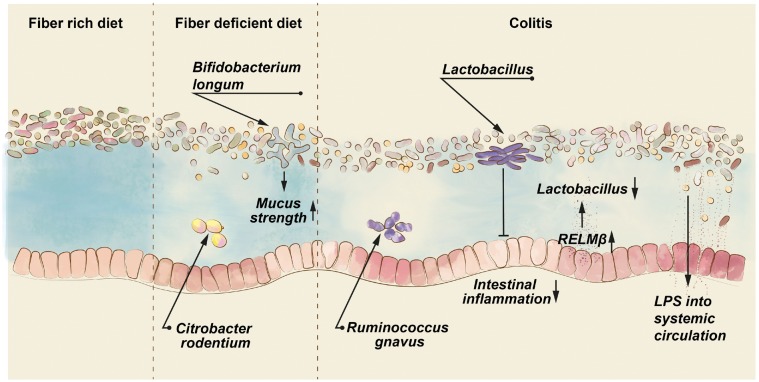Figure 2.
Defects of the intestinal mucus layer exacerbate intestinal infection and inflammation. Diets lacking microbiota-accessible carbohydrates, as contained in dietary fiber, direct gut microbial species to degrade host glycans of the intestinal mucus layer (depicted by lighter mucus color), thereby deteriorating mucus strength. A defective mucus layer increases the risk for intestinal infections, for example by the mouse pathogen Citrobacter rodentium. The diet-mediated mucus defect can be prevented by specific gut bacteria, such as Bifidobacterium longum. During colitis (depicted by intense red epithelial cells), increased expression of resistin-like molecule β (Relmβ) induces production of the antimicrobial protein regenerating islet-derived protein 3β (REG3β), which reduces beneficial Lactobacillus species. Correspondingly, application of Lactobacillus can ameliorate colitis. In the mucus of inflammatory bowel disease patients, an increased number of the mucus-degrading bacterium Ruminococcus gnavus has been observed, while a defective mucus layer may lead to increased translocation of bacterial lipopolysaccharide, thereby contributing to metabolic diseases.

